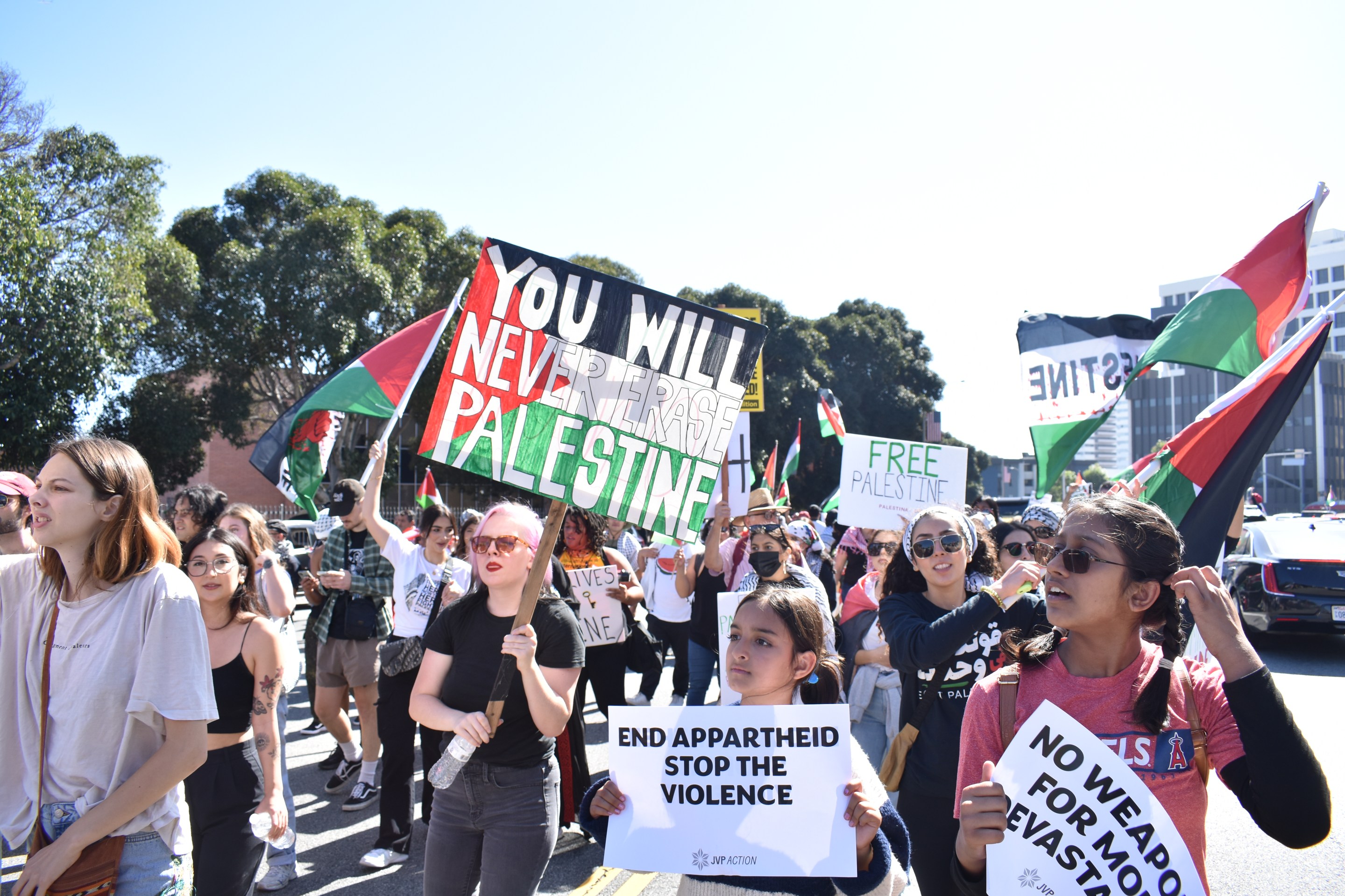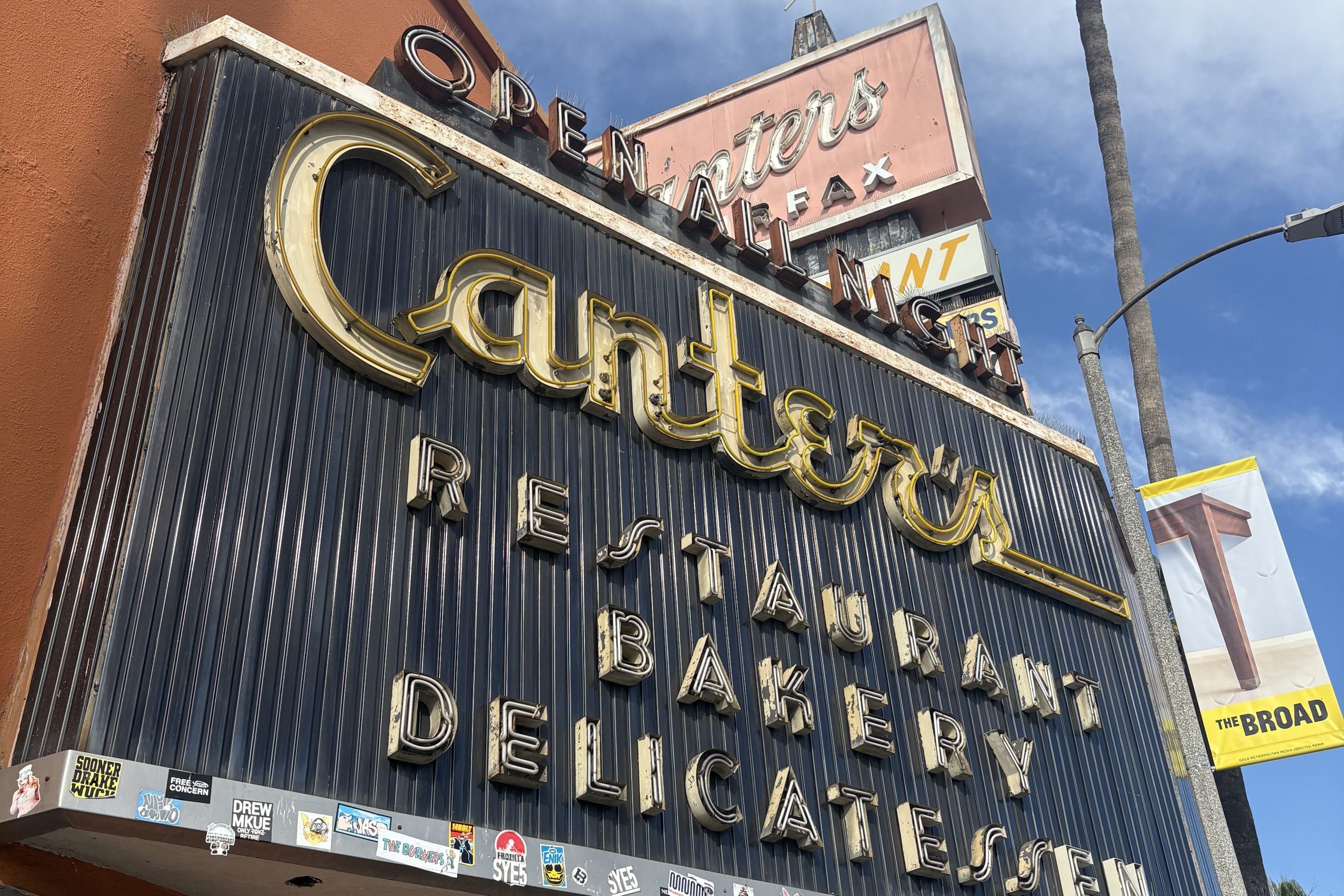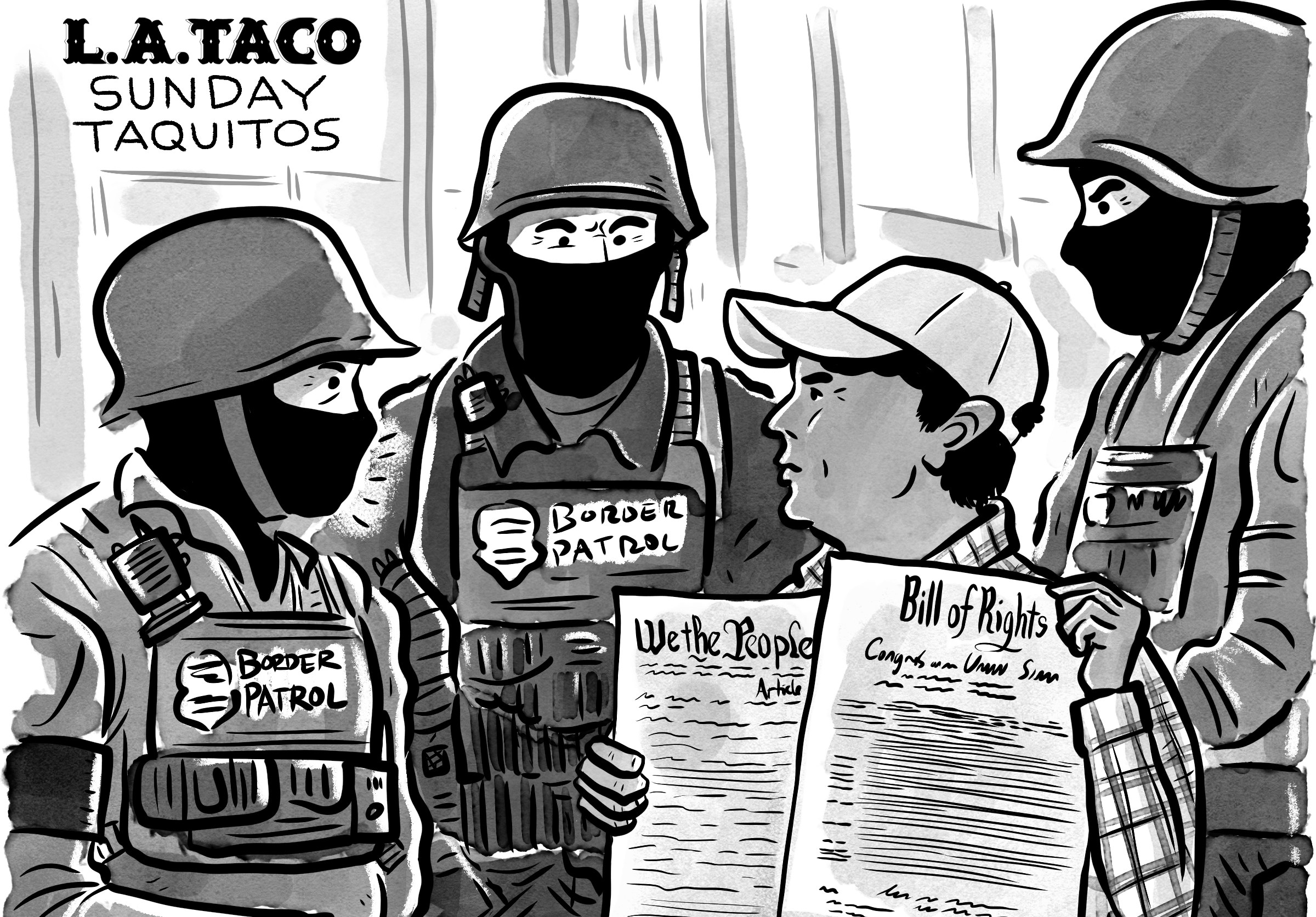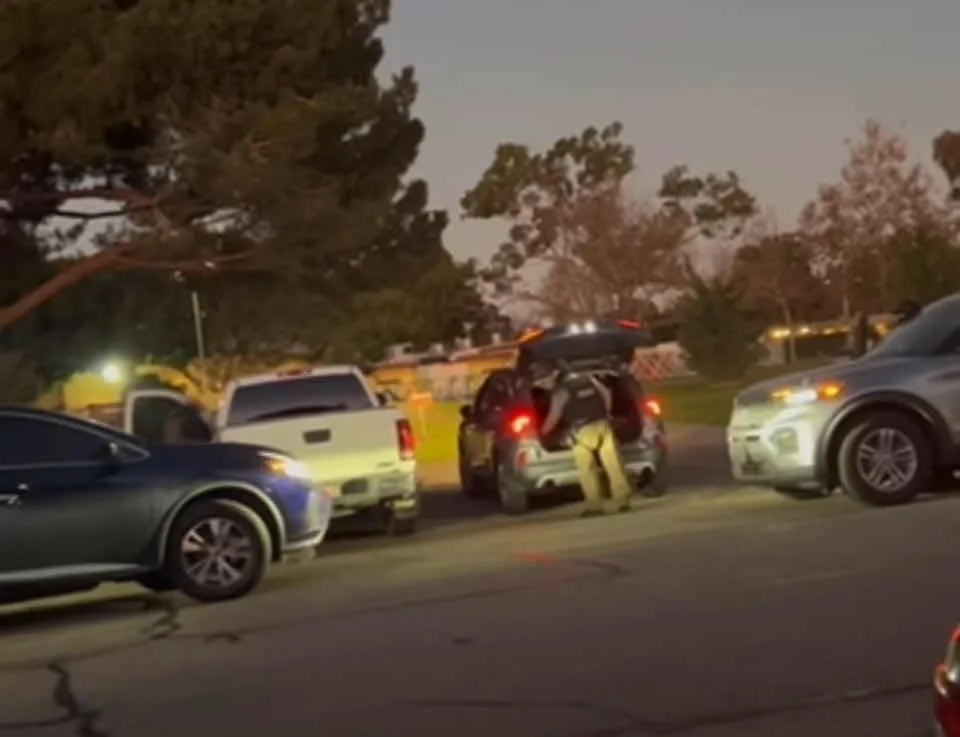Gaza is under siege. For many Angelenos, the news reports, statistics, and videos on social media in the wake of Hamas's terrorist attack on October 7 and brutal Israel retaliation have been harrowing.
Thousands have taken to the streets in protest. For weeks Gaza, a small, densely populated strip of land, has had its food, fuel, and electricity supply cut off by the Israeli government. An act many are calling an illegal collective punishment. While there is some aid being allowed in, the UN said it is not enough. Densely populated and long referred to as “the world’s largest open-air prison,” this is not the first abuse Gaza has had to endure.
The current situation’s primary origin is the 1948 Nakba. It was then that Palestinians were forcefully driven out of their native land by the founding of the State of Israel. This included a campaign of mass murder, atrocities, and deliberate expulsions. Many people living in Gaza today are victims of this or are the descendants of those who were.
The West Bank and Gaza were occupied by Israel in 1967, resulting in a further 350 thousand Palestinians being turned into refugees. Now, Israeli bombs are taking a frightful toll and experts fear history is repeating itself. While 1,200 Israelis perished in the initial attack, over 13,000 Palestinians have been killed, almost half of them children. Independent U.N. experts warn there is a high risk of the Palestinians facing a genocide.
Local and corporate-owned Western media, along with the U.S. government, has largely focused on the Israeli perspective and the initial attack on Israel. But for two members of L.A.’s Palestinian Community who were willing talk to L.A. TACO, the nightmare taking place in their homeland is a horrifying and profoundly personal reality. They have deep family and community ties to their ancestral homeland and continue to fight for the dream of a truly free Palestine.
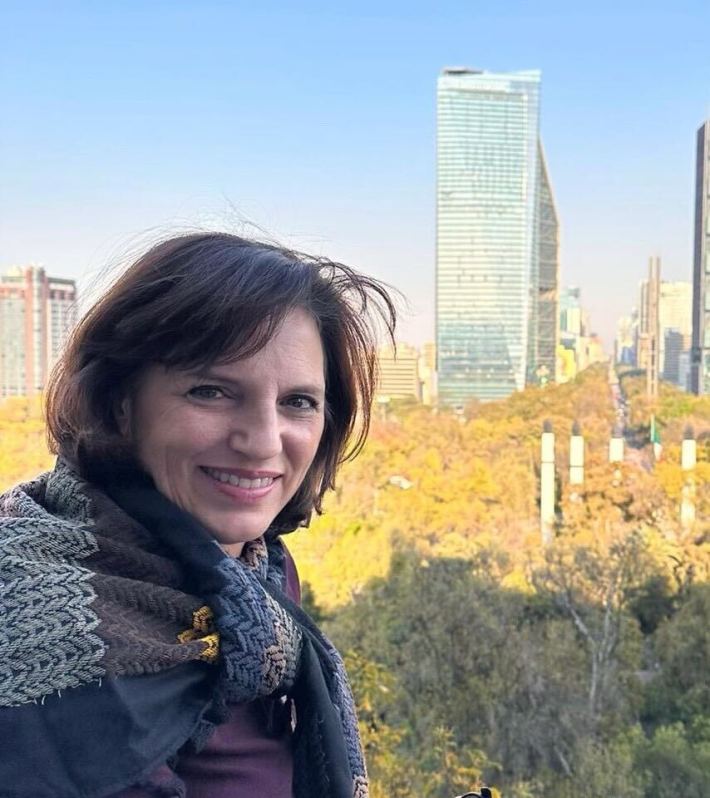
Through a friend of a friend, I was introduced to one such person: Dr. Laila Al-Marayati.
“The Nakba never ended,” she tells L.A. TACO. “This is all just the consequence of the original desire to rid the land of its people.”
She would know. Her family roots in Gaza go back before Israel, before the horrors of 1948, before the British. Her father’s family has been in Khan Yunis for hundreds of years while he chose to make a life in the United States.
After growing up in the Hollywood Hills, Al-Marayati became an OB/GYN and had a few political postings with the Clinton Administration, including an appointment to the U.S. Commission On International Religious Freedom. She currently serves as chairperson of KinderUSA, a charity that helps Palestinians with community services such as food, blankets, clean drinking water, vouchers for local markets, setting up hot school breakfasts, after-school programs, and summer camps for children. However, the current blockades prevent it from doing its work.
At first, she was stunned that Gaza’s imposing walls had been breached. Her family still owns land there, and her relatives now find themselves in danger.
“I have my aunts and uncles; I have first cousins,” she said. “Everyone is just desperately trying to stay in touch to make sure everybody is okay. Several members of our family were killed in the last week, but the closer relatives so far are okay, but every day you just wait. You don’t know.”
Taher Herzallah shares a lot in common with Al-Marayati. Now getting a Ph.D. in American Studies at the University of Minnesota, he came to SoCal at one-and-a-half, before growing up in Corona.
He attended UCR and was active in Students for Justice in Palestine. This led him to become one of the Irvine 11 students, who faced legal and academic retaliation for a non-violent civil disobedience protest in 2011. His recent participation in protests at the capitol earned him the ire of far-right Congresswoman Marjorie Taylor-Greene. This activism is not born solely of ideology. His large family has been in Gaza for generations, and he has already lost people in the current conflict.
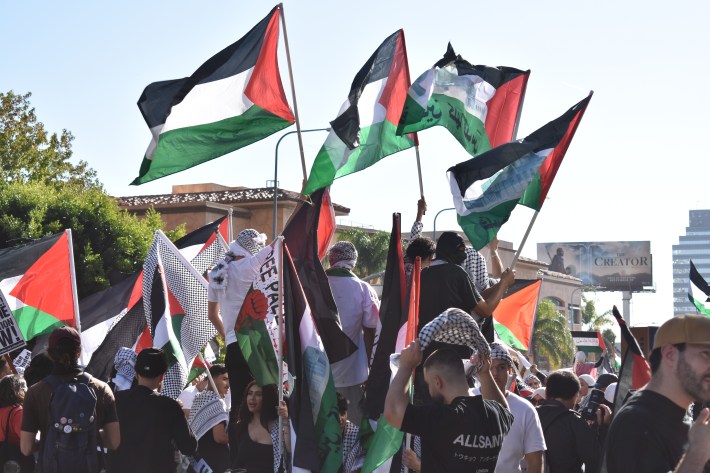
“The Israelis bombed our neighborhood, where my family lives,” he said. “We had two distant relatives who were killed in the airstrike, a woman and her daughter, and the rest have fled south.”
The situation Herzallah and Al-Marayati’s families find themselves in is dire. The bombing has already killed thousands, and now, with ground operations well underway, it will likely continue to get worse.
“My biggest fear on October 7 and 8 was that Israel was going to respond in a very genocidal way,” Herzallah said. “They have, in fact, just gone on a genocidal rampage.”
For Jewish folks like Benjamin Kersten, October 7 brought a sense of grief. He’s a member leader at both UCLA and with Los Angeles Jewish Voice for Peace, a leading anti-Zionist organization. He organizes with people who directly know individuals who were killed in the initial attack. Still, he believes it’s important to understand the historical context that led to this moment, including the Balfour Declaration in 1917 and the multiple wars that have been waged against Palestine.
“We mourn greatly the well over a thousand Israeli lives lost. We pray for the safety of those who have been taken hostage, and also, in this moment, we feel like we have not to allow those actions to lead to just a profound loss of life and the absolute brutality that I think we’ve seen every day since,” he said.
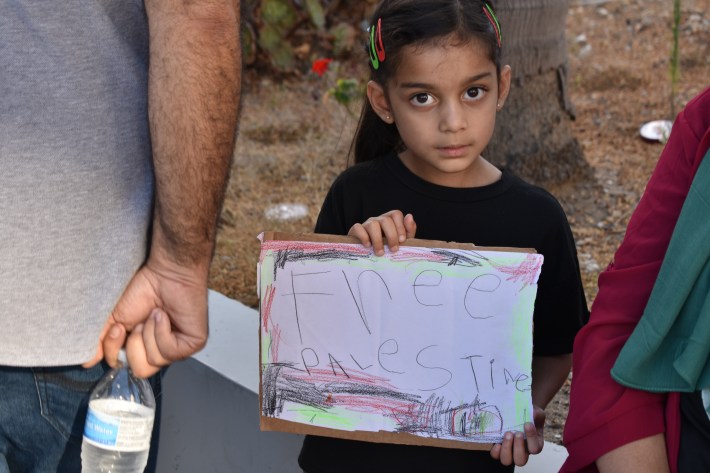
That brutality is pushing Gaza to the breaking point. This includes bombing its medical system, which Al-Marayati is familiar with, given her past visit to Al-Shifa hospital in Gaza City, where she talked with staff.
She spoke admiringly of them but pointed out they were short on resources and equipment even before the bombing started. She said after past bombardments, she would help the community try to rebuild after the ceasefire, but now she sees what she characterizes as an ethnic cleansing on the horizon.
“I believe that the Israeli Army will just reoccupy Gaza with the expectation that most of the people will just be displaced, probably end up leaving through Egypt,” she said.
This fear of reoccupation is now seemingly confirmed by the Israeli Government.
In spite of this, the Palestinians have continued to resist. This has often taken the form of peaceful movements that state authorities have suppressed. For example, the BDS (Boycott, Divestment, Sanctions) movement that uses non-violent tactics similar to those that brought South Africa’s Apartheid Government to heel has been met with state-sanctioned opposition.
Al-Marayati pointed out that the mostly peaceful Great March of Return in 2018-19 was met with force. Over 250 people were killed. She was absolute in her assertion that she did not support terrorism and found the massacre of Israeli civilians “horrific.” Still, she was resolute that the Palestinians have a right to fight back against their occupier.
“This is a people living under occupation. They are subjected to violence on a daily basis on the part of the Israelis. They have the right to resist like people anywhere, but they would have to follow the rules of international law, and that is if you’re going to defend yourself, it’s against combatants, not against civilians,” she said.
Reputable human rights groups have named the violence she describes as apartheid, which includes killings, torture, oppressive use of checkpoints, denial of freedom of movement, demolition of homes, and long-term detention without proper charges. She believes there needs to be far more consideration given to the Palestinians.
“There tends to be a type of dehumanization of Palestinians as if we just erupt in violence out of nowhere, and that’s just our nature,” she said. “There’s sort of a lack of awareness of just the humanity of the people who are there. They’re just as much deserving of everybody's care and concern and outrage as the Israelis who lost their lives last weekend. They all matter.”
Everyone I spoke to for this piece was critical of the media’s response. In addition to dehumanization, there is often little context given. For example, the Nakba, the Balfour Declaration, 1967, or the fact that Israel helped create Hamas are little discussed. Sometimes there is a both-sides type of equivocation, and studies indicate the Western media is biased in favor of the Israeli perspective.
All three were also critical of the U.S. government. Having historically provided Israel with over 200 billion in assistance and aid, the Biden administration now asks for billions more. Israel has received multiple advanced U.S. weapons systems, including aircraft, vehicles, and missiles. Washington’s rhetoric is distinctly pro-Israeli, and American diplomats blocked a UN resolution calling for aid to Gaza and humanitarian pauses in the violence.
While there has been a recent American push for pauses and a potential pause in sight as of November 22, there is no indication the U.S. is urging a ceasefire. Al-Marayati believes that the U.S. needs to immediately stop the shipment of arms.
“Israel is using it against civilians,” she said. “That’s against our own laws.”
She said that America is not an honest broker, and Herzallah found the U.S. response “abhorrent.” They want people to stand up and resist.
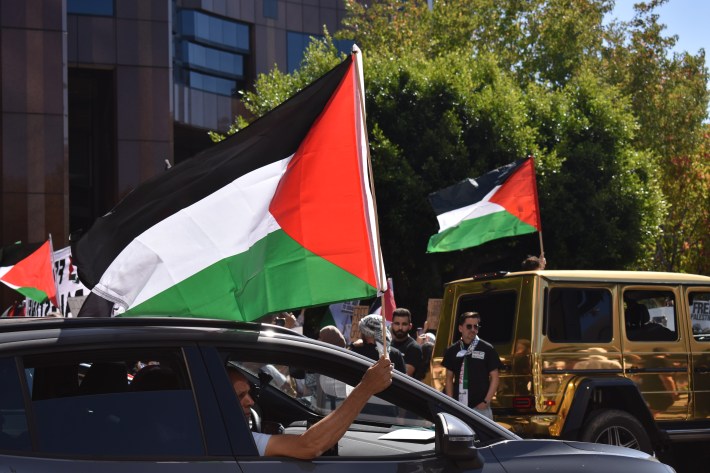
Multiple demonstrations supporting the Palestinian cause have taken place in the L.A. area over the past few weeks. A few have garnered thousands of marchers.
Kersten and Al-Marayati encourage people to call their Congressional Representatives. Kersten says Jewish Voice for Peace is focused on upcoming votes, and along with other pro-Palestinian organizations, they have protests and actions in the works. Herzallah, who is currently organizing with American Muslims for Palestine, says it’s important to go to marches and to share stories.
“I think people can share our story. Make sure that the world is seeing the truth. I think that people can join the mass demonstrations that are happening around the country. I think that people can call their congressmen and senators and demand a ceasefire now. I think that’s the least that people can do so that they’re not complicit,” he said.
He is adamant that Palestinians will not be pushed into the Sinai as he believes they will never be allowed back into their homeland. It's a fear well-founded in history while some Israeli leaders are openly yearning for an ethnic cleansing scenario. Still, the ground war is now in full swing, and his relatives are faced with living on a full-scale battlefield.
“It’s hard to describe. Knowing there is a high likelihood that casualties will be so high once the Israeli ground invasion begins,” he says. “The ground invasion will lead to tens of thousands of people killed. And I just can’t imagine what that’s like, to be honest with you. It feels like the world is closing in on us.”
Even with the situation looking so bleak, he shared a vision of a world beyond war and occupation.
“All I know is I just want the aerial bombardment to stop. I just want my family to be safe. I want my kids and my relatives' kids to grow up in a beautiful place, a peaceful place. Instead of hearing the sounds of bombs, I want them to hear the sounds of birds in the morning. I just want them to play in parks. I just want them to swim at the beach.”
Editor's Note: The author has attended pro-Palestine protests and recently signed an open letter protesting the media coverage of Israel.
